You asked the question..it wasn't our people who owned them
if the arabs did deals with african nations, thats on them, but the jews in africa faced their own persecution from the arabs africans and eventually europeans

Last edited:
You asked the question..it wasn't our people who owned them
if the arabs did deals with african nations, thats on them, but the jews in africa faced their own persecution from the arabs africans and eventually europeans

The original meaning is black, you've just acknowledged that and that the meaning was changed.Moor doesn't mean black. There was a time when it did, but as time went on the name meant all kind of terms.There are hella pictures on the net that show the moors fair skinned and tan skinned. as somewere depicted black ,


heres your black ones now

I'm lost. Is that @Sensei guy a Cac or just a self righteous c00n?
The original meaning is black, you've just acknowledged that and that the meaning was changed.
Just like the meaning of the word continent changed over time to include europe.
Wait Imma self righteous c00n , because I don't fall for that fake ass aslamalakum Moor shyt. You got me fukked up.
The whole moor shyt is dumb, but obviously you being a sheep follow along with any dumb shyt.
Personally, i dont think being on the moors dikks is all that important but its worth acknowledging that an african living in the 6th and 7th century would be regarded as a moor. I think you're making it a bigger deal then it isWait Imma self righteous c00n , because I don't fall for that fake ass aslamalakum Moor shyt. You got me fukked up.
The whole moor shyt is dumb, but obviously you being a sheep follow along with any dumb shyt.
You're using circular logic, its obsolete that the original term meant black when the term Moor was used in time periods in which it meant any one darker skinned than an European(Middle Easterners and Turks),the term Moor was used in periods for any one was a muslim , that being some one black or white.
Imma ease back on this.

Moor doesn't mean black. There was a time when it did, but as time went on the name meant all kind of terms.There are hella pictures on the net that show the moors fair skinned and tan skinned. as somewere depicted black ,


heres your black ones now


I can concur with some of this, the name Moor was used for anyone who was muslim, and that included people who were Iraqi,Turkish,Syrian,Arabian, Arabic North Africans etc. But its true the name Moor was usually used for people of dark skin and a dark hue but later on the term Moor was used for anyone that was muslim.

They also killed thousands of white men and made the women slavesThey was pawging in medieval times


The Arabic word Harem derives its original spelling and meaning from the Egyptian word harim, meaning ‘women’. In Egypt, A harem was simply the place where women lived. Any middle class home would have a harem, or women's room, where unmarried female relatives and servants would sleep. One would expect the king's palace to have similar facilities. There was, of course, a difference. The king had several palaces and so he needed several harems. It took a very large number of people to keep each palace functioning smoothly and so we would expect appropriately large harems. Even a half dozen women in the harem of a private residence could easily be integrated into the social and economic system of the rest of the house, but royal harems were so large that they took on a life of their own. Each harem needed its own estate, consisting of land and peasants to produce food for everyone and enough of a surplus to pay for all of the other necessities. Such a system would require its own officials and administrators, male of course, to keep everything running smoothly, but there is no evidence to suggest and no reason to believe that any of these men were eunuchs.
With the advent of Islam, and then the Turks, certain things changed. Under Islamic law, a man can have as many wives as he can support, with the traditional number topping out at around four. However, concubines were unlimited and many harems grew into the thousands. Historically, the concubine was frequently voluntary (by the woman and/or her family's arrangement), as it provided a measure of economic security for the woman involved. The Sultan's favorites, and the rest of his concubines main function was to entertain the Sultan in the bedchamber.
An Odalisque was not a concubine of the harem, Odalisques were ranked at the bottom of the social stratification of a harem, serving not the sultan, but rather, his concubines and wives as personal chambermaids. Odalisques were usually slaves given as gifts to the sultan, although some Georgian and Caucasian families urged their daughters to enter a harem as an odalisque, hoping that they might become a palace concubine, favored slave, or wife of the sultan. Generally, an odalisque was never seen by the sultan, but instead remained under the direct supervision of his mother or chief Wife. If an odalisque was of extraordinary beauty or had exceptional talents in dancing or singing, she would be trained as a possible concubine. If selected, an odalisque trained as a concubine would serve the sultan sexually, and only after such sexual contact would she change in status, becoming thenceforth a concubine. In the Ottoman Empire, concubines encountered the sultan only once—unless she was especially skilled in dance, singing, or the sexual arts, and thus gained his attention. If a concubine's contact with the sultan resulted in the birth of a son, she would become one of his wives.
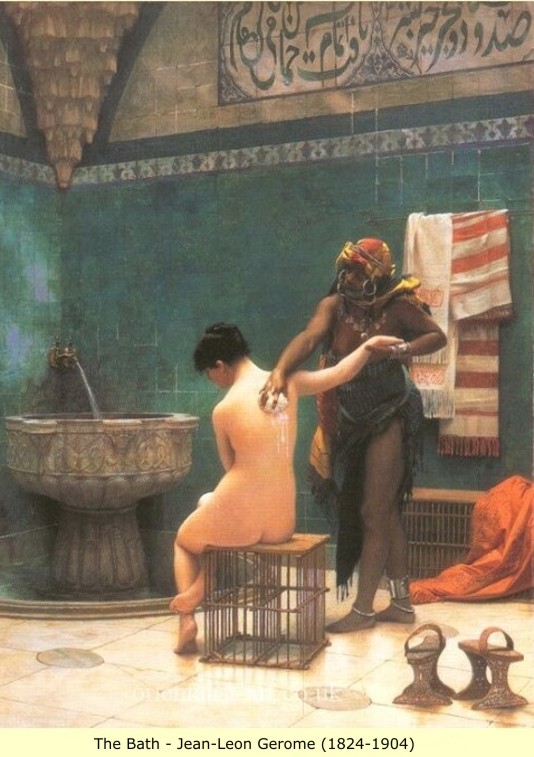
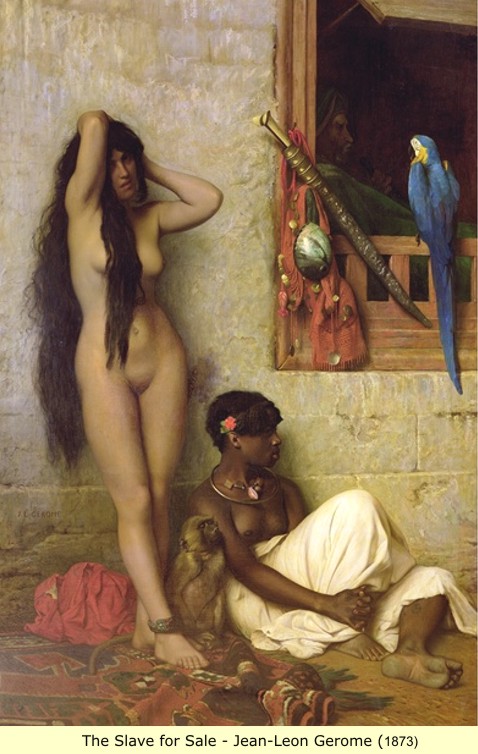
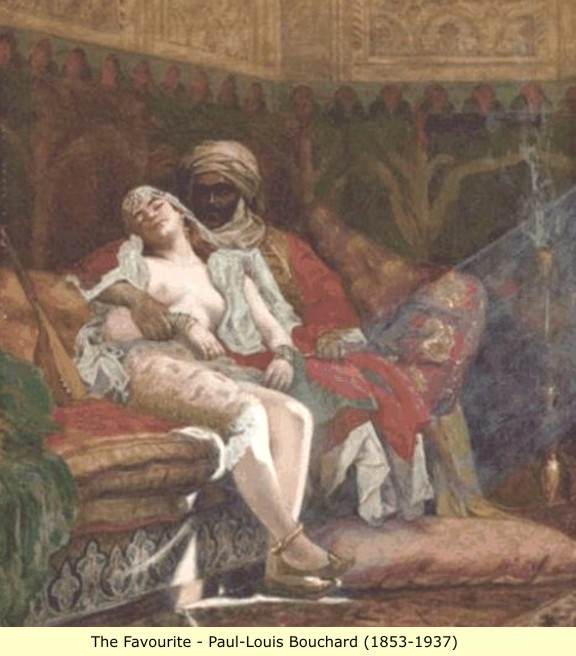
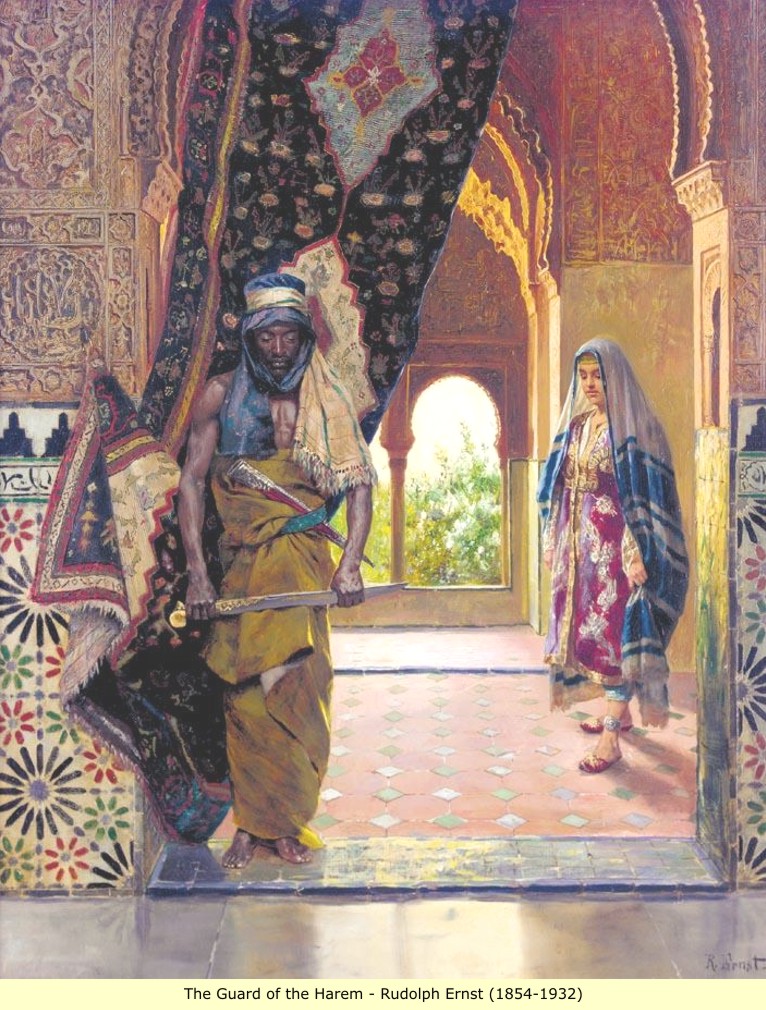
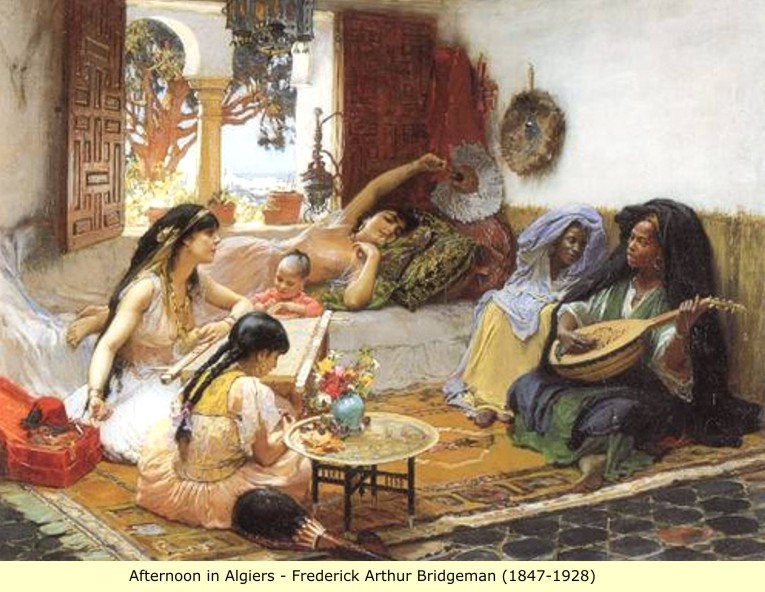




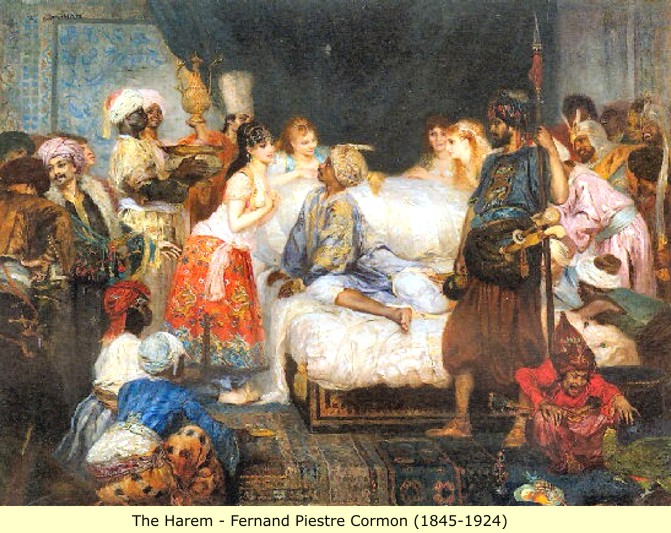
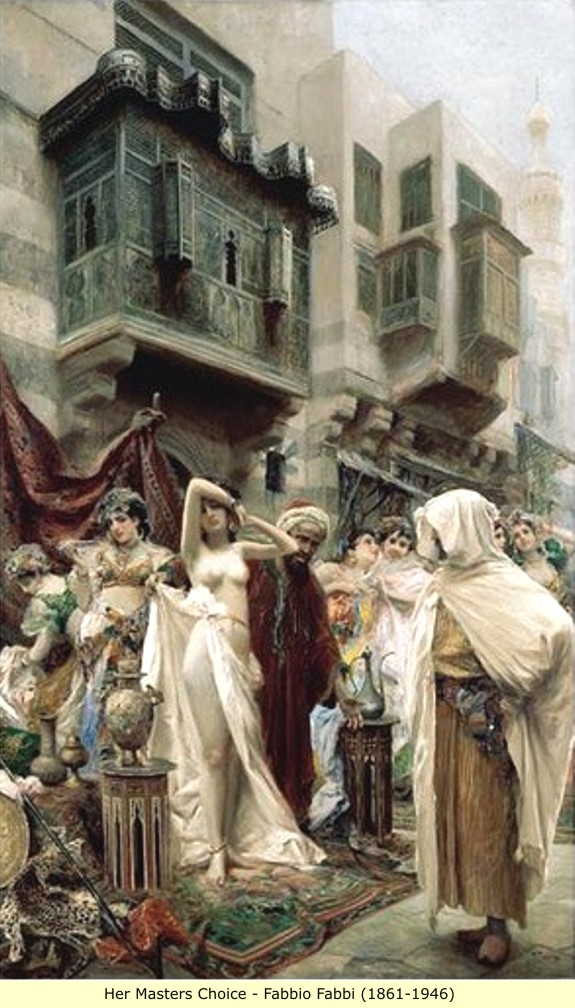




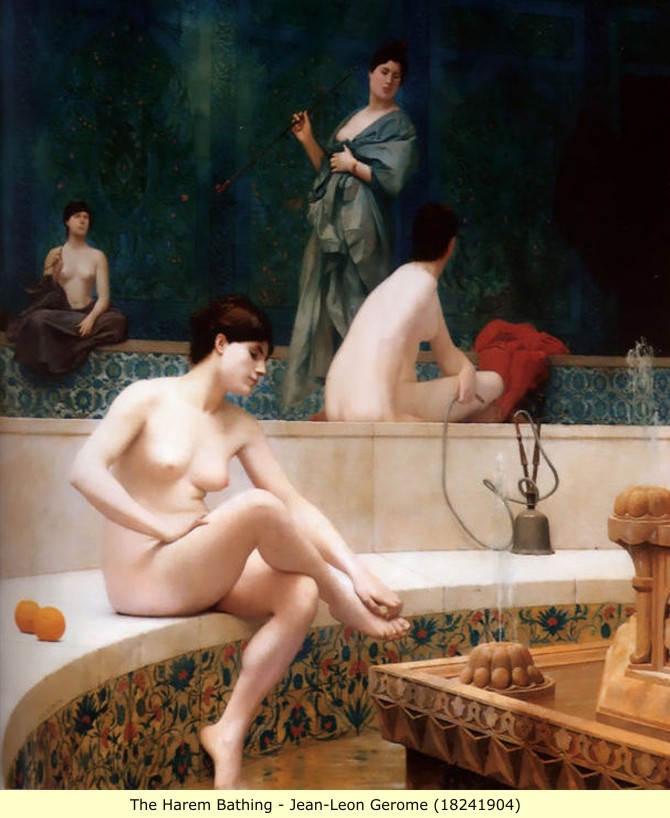

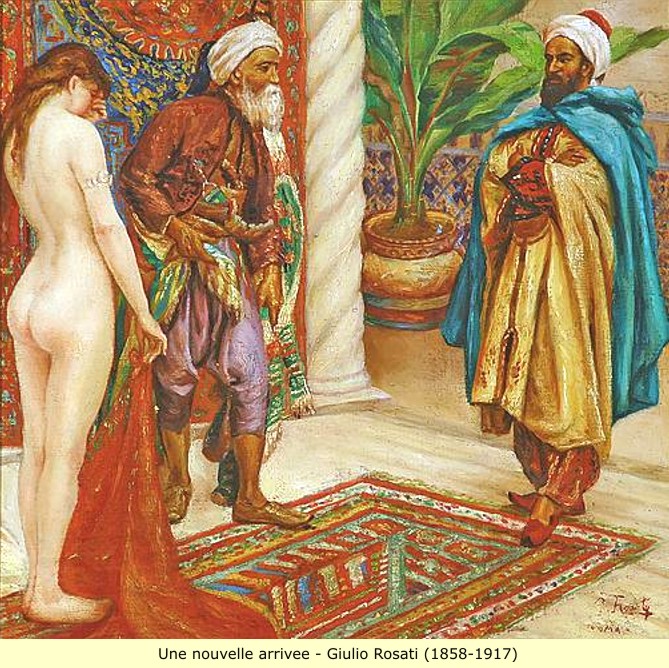



the moors are responsible for passing the route to the europeans so no.
and fukk them c00n ass moors, selling their african brothers that didnt convert to islam.
You asked the question..
Can we just establish that these people did not refer to themselves as Moors and that the word is an exonym. Now the question is, who were the people who applied and popularized this exonym and where did the word come from?
There were numerous words used to describe "black" that were applied to the peoples of the "African" continent by outsiders that we still use today. Niger, Maur\Moor, Aethiops, Sudan and the people have adopted the name. The Latinized "Berbers" who once dwelled in North Africa are responsible for the adoption of the word Niger into Latin. But it was the Greco-Roman Byzantines who are responsible for the term Maurus\Mavros (maurus is the latin adopted form).
For it is only in the Greek language that mavros\mauros means black\dark. The only other language I can find a similar term used to refer to "blacks" is in Turkish who have a term morarmış which means bruised and\or "black and blue" and when you separate the word you find that mor = purple, mor(ar) = the purple, mis = are, and it roughly translates into "are the purple." Also, in the Greek there are mavros\maurus grapes which are described as black\purple. So the term obviously applied to a deep dark person.
It's all so interesting when you think about it. Especially when you consider that the Turks conquered Greco-Roman Byzantium based out of what we now call Turkey seated in Istanbul, aka Byzas, later changed to Constantino-polis. It's quite possible they adopted the word Mor(ar) from the Turkish tribes. This could explain why Aethiopian (burned face) was the term used by the Greeks in antiquity and later replaced with Mavros\Maurus, removing the Greco-Roman suffix -os\us leaving Mo(o)r.
Just my musings. The would also help explain why nobody else in Europe uses Moor, but instead have words like serna\cerna\chernyy (mainly Eastern Europeans and Russians), schwarz\zwart (Deutsch), musta (Finnish, Estonian). Only the Greco-Romans have Mavros\Maurus.